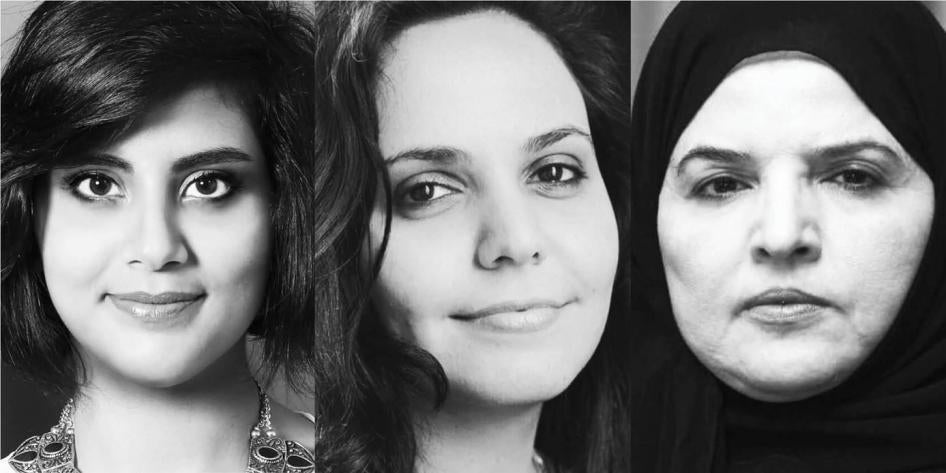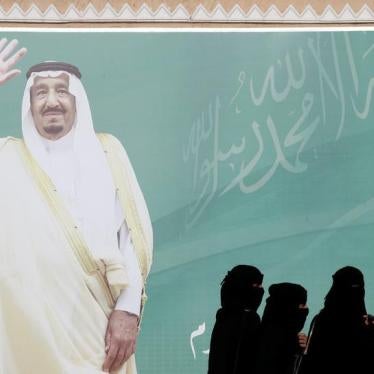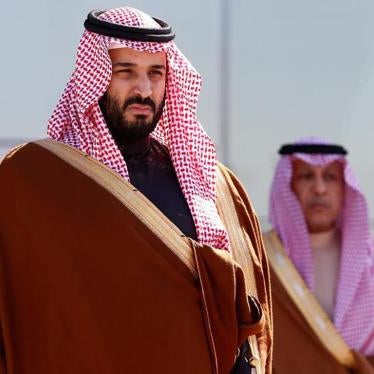When Saudi Arabia announced in September that it would, at last, lift the ban on women driving on June 24, 2018, I thought I would be celebrating a milestone that took brave Saudi women’s rights activists nearly three decades to achieve. Instead, as Sunday approaches, I am deeply disturbed because many of the champions behind the reforms have been silenced, imprisoned or forced into exile.
Since May 15, Saudi authorities have arrested more than a dozen prominent Saudi women activists and their male supporters, and imposed travel bans on others. Those arrested include some of the women who first defied the Saudi driving ban in 1990.
Some were temporarily released, but nine activists remain behind bars, facing serious charges and long prison terms.
The photos of the most prominent women’s rights activists — Aziza al-Yousef, Eman al-Nafjan and Loujain al-Hathloul — were posted on Twitter and news outlets with the caption “traitors.” According to local news media, the nine will be referred to the Specialized Criminal Court— established to adjudicate terrorism-related offenses.
If convicted, they could be sentenced up to 20 years.
Fear of activism
Saudi Arabia has never tolerated dissent. The authorities prohibit protests, trade unions and independent human rights organizations. Even so, the hypocrisy of cracking down on women’s rights activists while taking credit for the reforms they have long demanded is remarkable. It also reveals the fear at the heart of the Saudi state. If the authorities give credit to the women who championed lifting the driving ban, it means conceding that reforms can be won through activism, and then the Saudis may demand more.
This month, Saudi authorities arrested two more women: Nouf Abdelaziz, who publicly supported the women arrested in May, and her friend Mayaa al-Zahrani, after she published a letter from Nouf given to her to share publicly in the event of Nouf’s arrest. In it, Nouf said, “I have never been (anything) but a good citizen who loves her country and wishes for it nothing but the best.”
There is one obvious answer as to why the Saudi authorities might be arresting these women. Back in September, around the time of the announcement that the driving ban would be lifted, authorities called Saudi women activists and told them not to speak to the media. The purpose seemed to be to ensure that the crown prince, Mohammed bin Salman, would get all the credit.
So as international journalists descend on Saudi Arabia to witness the historic end of one of the world’s most blatant and bizarre forms of gender discrimination, the government apparently wants to ensure that the spotlight stays on the crown prince — with the real champions nowhere to be seen.
Salman, 32, has sought to diversify the economy with his Vision 2030 plan, which includes increasing women’s participation in the workforce and opening the country up to foreign investors. This has led to piecemeal reforms: restricting the power of the religious police and opening cinemas. He has taken small steps for women’s rights. Girls will soon be allowed to play sports in schools, women can attend sports matches in stadiums as spectators, and they will soon work in air traffic control, passport control, and traffic police — jobs previously closed to them.
Even so, the country’s male guardianship system, the biggest impediment to Saudi women’s rights, remains in effect. Under this system, women must obtain permission from their male guardian — a father, brother, husband, or even a son — to travel abroad, obtain a passport, enroll in higher education, get a life-saving abortion, be released from a prison or shelter, or marry.
Remember the true champions
Earlier this year, the crown prince went on a world tour to present himself as a reformer, courting politicians, businesses and celebrities. The smoke-and-mirrors public relations campaign is designed to deflect the world’s attention from his repressive crackdown at home. While they detained women’s rights activists, the Saudi authorities organized staged photos and videos of officials handing women their driver’s licenses; and Vogue Arabia magazine published a glossy front-page cover of a Saudi princess in the driver’s seat of a luxury vehicle.
Saudi’s crown prince wants it both ways: to be lauded as a reformer on the world stage, and to ensure his status as the only reformer at home. In some ways, this strategy has worked: Only Canada and Norway have expressed concern about these arrests.
Countless other world leaders who congratulated Salman for lifting the driving ban have yet to say anything about the new crackdown.
When Saudi women get behind the wheel Sunday, we must remember the true champions behind this reform who are languishing in prison or silenced. The crown prince may claim credit, but the rest of the world needs to let him know it is not deceived.










